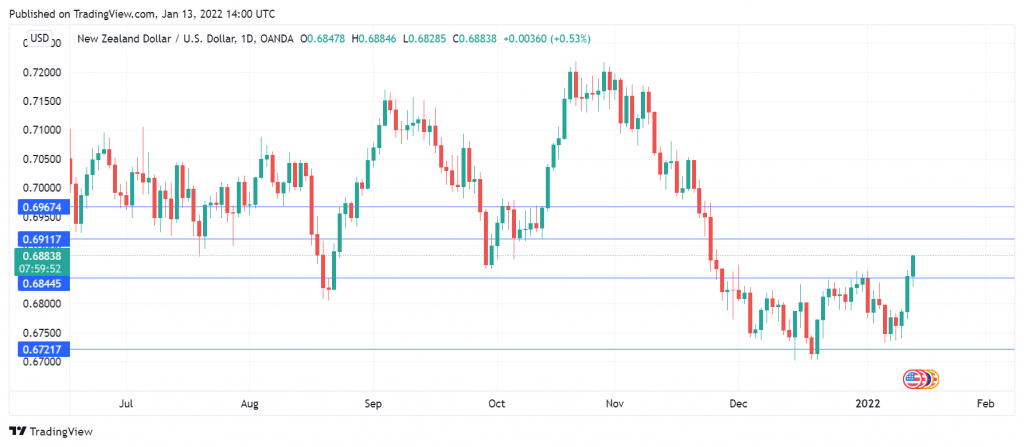The New Zealand dollar has posted gains for a third straight day. Early in the North American session, NZD/USD is trading at 0.6886, up 0.56% on the day. The currency is on a tear, rising 1.62% so far this week.
Strong Risk Sentiment Boosts New Zealand Dollar
There was plenty of anticipation ahead of the U.S. CPI release on Wednesday, and the headline reading did not disappoint, coming in at 7%, which matched the estimate. Still, the sizzling read did not dampen the positive mood in the markets, perhaps because investors were relieved that U.S. inflation wasn’t even higher.
The U.S. dollar can’t seem to buy a break. First, nonfarm payrolls came in at 199,000, well short of the consensus of 425,000. This was followed by a 7% CPI release, which was even higher than the previous reading of 6.8%. Both of these events should have given the U.S. dollar a boost, but investors remain supportive of the other major currencies. Fed Chair Jerome Powell’s testimony on the Hill was considered less than hawkish, even though Powell assured law-makers that the Fed would raise rates as much as needed in order to contain inflation.
In short, the markets do not seem concerned by the hawkish pivot from the Fed as it moves towards a normalization of policy. Still, the U.S. dollar could rebound rather quickly under the right conditions, such as inflation moving even higher or Omicron causing more economic damage than anticipated.
The New Zealand dollar also received a boost from New Zealand Building Consents, which rose 0.6% in November after two consecutive declines. This indicates strong demand in the housing sector, despite the disruptions from COVID-19.
NZD/USD Technical
- NZD/USD is putting pressure on resistance at 0.6912. Next, there is resistance at 0.6967
- 0.6844 is providing support. Below, there is support at 0.6721

This article is for general information purposes only. It is not investment advice or a solution to buy or sell securities. Opinions are the authors; not necessarily that of OANDA Corporation or any of its affiliates, subsidiaries, officers or directors. Leveraged trading is high risk and not suitable for all. You could lose all of your deposited funds.